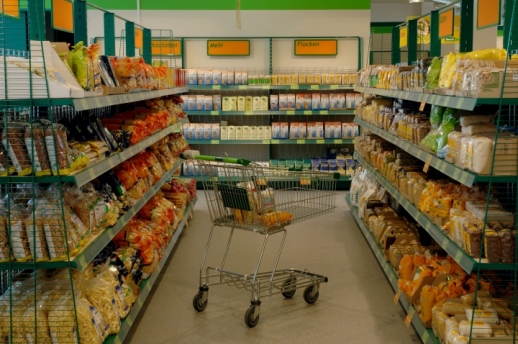Offload stocks to bring food prices under control: CII
 New Delhi, Jan 3 - With food prices galloping and no early relief in sight, an industry body has said the government should partly offload its buffer stock while incorporating agricultural purchase tax in the proposed goods and sales tax (GST).
New Delhi, Jan 3 - With food prices galloping and no early relief in sight, an industry body has said the government should partly offload its buffer stock while incorporating agricultural purchase tax in the proposed goods and sales tax (GST).
"The unprecedented increase in food prices has been caused primarily by supply side factors due to decline in the kharif output," said the Confederation of Indian Industry (CII) in a statement Sunday.
"The rise in the price of essential commodities will put pressure on disposable income of the common people and may restrict the monetary and fiscal space for maneuvrability," said CII director general Chandrajit Banerjee.
Food inflation has remained in double digits for six months in a row and was hovering around the 20-percent mark in December, according to data released by the government.
The price increase has been particularly severe for cereals (rice), pulses, vegetables (potatoes) and sugar.
The representative body of India Inc. said the government should offload its stock of grains, which as per data available with the food and public distribution ministry exceed buffer norms.
As on Jan 1, the actual stock of rice stood at 17.58 million tonnes, while the buffer stock level was 11.8 million tonnes.
Similarly, the actual wheat stock was 18.21 million tonnes, compared to the buffer level of 8.2 million tonnes.
"State governments, in particular, need to put in place mechanisms for the widespread distribution of wheat and rice in order to check shortages," CII said.
Among other measures the apex body recommended were subsuming the purchase tax on agricultural commodities in the GST, so that state taxes on these products were abolished.
Also, the private sector should be allowed to participate in warehousing and distribution of agricultural goods, it added.
"Pulses could be included as part of the buffer stock maintained by the government in addition to cereals such as rice and encourage a new green revolution in pulses and oilseeds, which could help beef up the supply side," said the statement.
Some other measures suggested were:
- Revamping the minimum support price (MSP) policy to make it more market-oriented;
- Involving the private sector in farming of non-MSP crops;
- Development of post-harvest infrastructure to reduce wastage;
- Encouraging investments in organised retail to ramp up supply chain;
- Increasing public investment in irrigation and related areas; and
- Enacting a "model" land leasing law that can be adopted by states to address land fragmentation.
"The government must address the issue of stagnating productivity in the agricultural sector," said CII. (IANS)